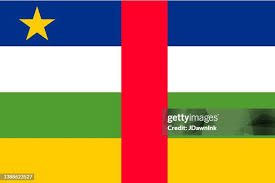Understanding the Situation in the Central African Republic

Introduction
The Central African Republic (CAR) has been a focal point of international concern due to its socio-political instability and ongoing humanitarian crises. Understanding the current developments in the CAR is crucial, not only for those interested in African affairs but also for the global community, as the situation impacts regional security, human rights, and humanitarian efforts.
Current Situation
As of late 2023, the Central African Republic continues to grapple with the aftermath of years of civil conflict that began in 2013. Despite a peace agreement reached in 2019 aimed at ending hostilities between rival armed groups, violence persists in various regions, obstructing progress towards political stability. Reports indicate that clashes between armed factions have led to significant civilian casualties and displacement, with nearly a quarter of the population—approximately 1.7 million people—currently displaced from their homes.
In recent weeks, the country has seen an increase in violence, particularly in the northeastern and southwestern regions. International organisations, including the United Nations and the African Union, are making efforts to mediate peace but face challenges due to the complex web of local grievances and the involvement of foreign militia groups. The economic situation remains dire, hampered by poor governance, extensive poverty, and lack of infrastructure. However, there are signs of resilience among local communities who are endeavouring to rebuild their lives.
Humanitarian Impact
The humanitarian situation in CAR is one of the worst in the world. Many citizens face food insecurity, with an estimated 2.4 million people in urgent need of humanitarian aid. NGOs are actively providing assistance, focusing on food distribution, healthcare, and education. Nevertheless, the security situation often hampers these efforts, with aid workers facing threats from armed groups.
International Response
The international community has responded with a mixed approach. While there is recognition of the need for increased humanitarian aid, there are also calls for stronger sanctions against those perpetuating the violence. The French military presence has diminished, but Russia has become increasingly influential, providing military assistance to the CAR government, which complicates the dynamics within the region.
Conclusion
The Central African Republic remains in a precarious situation as it attempts to navigate its path towards peace and recovery. The resilience of its people amid adversity is noteworthy, yet the challenges are substantial. International engagement and support are critical in ensuring that the CAR can overcome its challenges, promote stability, and secure a better future for its citizens. The coming months will be pivotal in determining whether the peace efforts can take hold and lead to sustained development in the Central African Republic.









